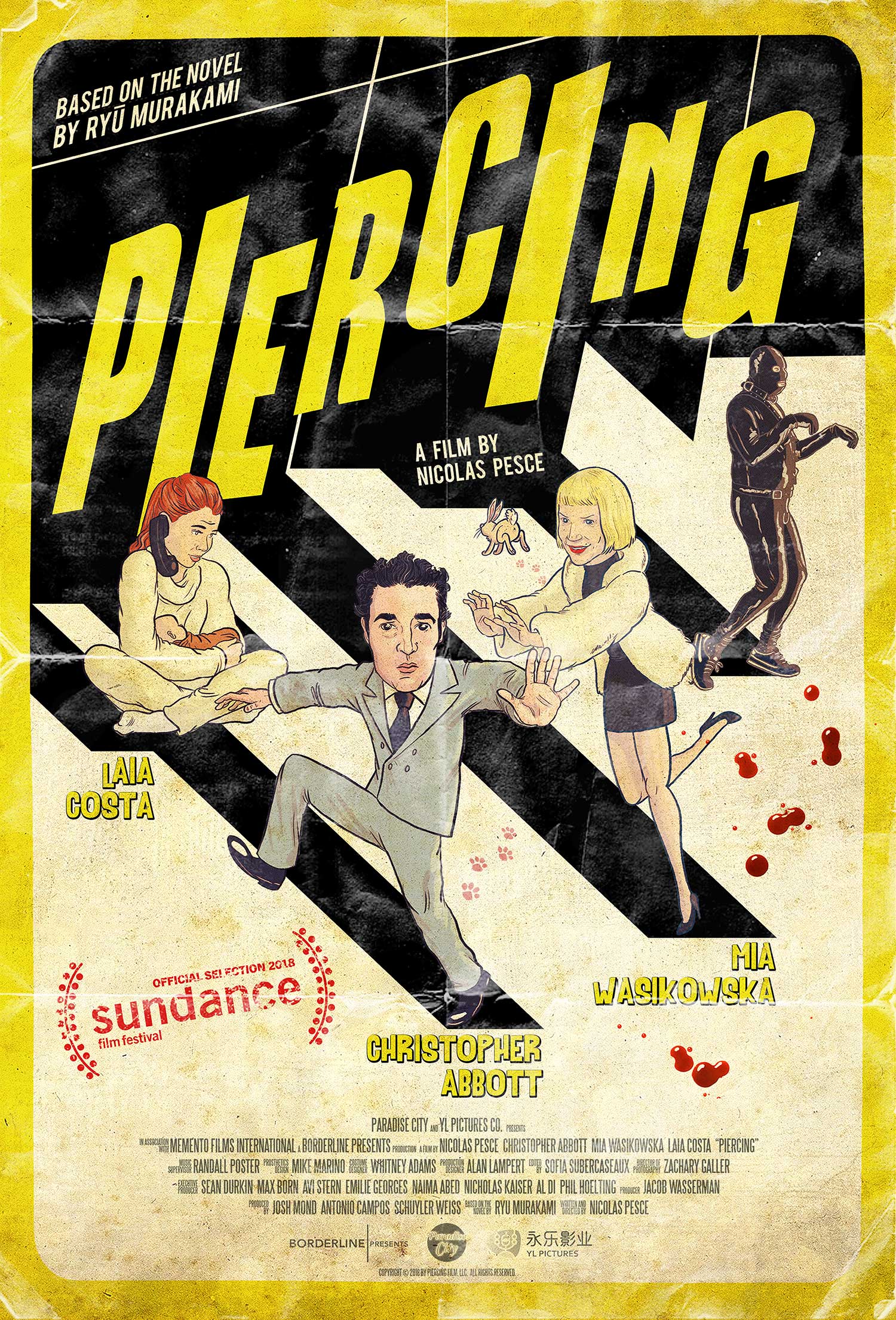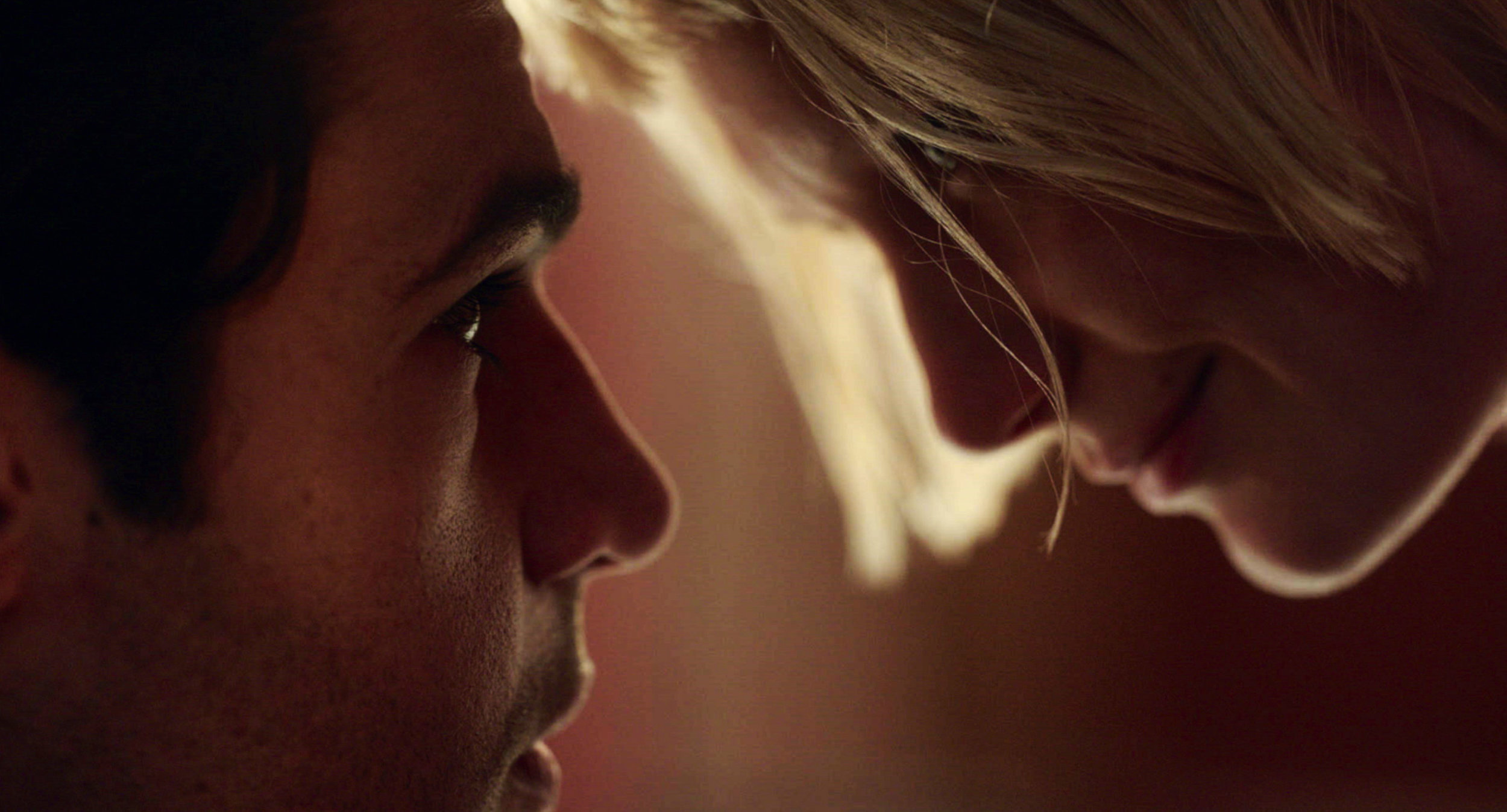US | 2017 | Directed by Nicolas Pesce
Logline: A rookie serial killer sets up in a hotel room with his next murder rehearsed only to find himself in over his head after his intended victim upsets his plans.
Based on the novel of the same name by Japanese author and filmmaker Ryū Murakami, Nicolas Pesce takes the guts of the book, the sadomasochistic proclivities, sexual anguish, intense neurosis, acute anxiety, and exquisite agony, and fashions an utterly gorgeous and deliberately frustrating paean to the giallo movies of the late 70s/early 80s, especially the work of Dario Argento. It’s hard candy for cinephiles, and for anyone else, it’s likely to leave a sour taste in the mouth.
Reed (Christopher Abbott) is a man on the edge of the abyss. Married to lovely Mona (Laia Costa), they have an infant child, and live in an apartment in what feels like a vaguely alternate universe New York (or maybe it’s Nu-TokYo-rk). Reed is struggling with the diabolical urge to stab his baby boy with an ice pick. His wife seems none the wiser to her husband’s inner turmoil. Reed leaves on a “business trip” and sets up murder shop in a hotel, meticulously rehearsing his obsessive homicidal desires. His little red book is full of notes. But the first glitch arrives, as his arranged hooker is not available. Reed accepts the substitute, Jackie (Mia Wasikowska), who arrives, demands a stiff drink, briefly masturbates, and then excuses herself to take a long shower.
Reed’s perfectly planned murder set piece is not going quite to plan. But it’s going to get a lot more askew - and a fuck more painful - before the night is through.
One could view Piercing as a kind of psychosexual chamber piece. Essentially a two-hander, and almost entirely set in just three rooms; the Reed apartment, Reed’s hotel room, and Jackie’s apartment, with the single exterior scene outside a hospital looking more like a set, and the cityscape montage that bookends the movie utilizing miniatures, Piercing is a blackly comic (oh, so dark) study of deviance and duplicity that could easily have fallen into the trappings and limitations of filmed theatre, but with Pesce’s precise command of mise-en-scene (including split-screen), profondo rosso cinematography, and heavily stylised production design, the inherent claustrophobia is hardly apparent.
Superb performances from Abbott and Wasikowska (easily my fave of hers) as protagonist/antagonist/nemesis intertwined. Costa (who was terrific as the lead in Victoria, but in a small role here) plays perfect soft warm counterpart to the cold façades of Reed and Jackie, and a nod must be made to Maria Dizzia as Reed’s first victim. Also excellent is the special effects makeup from Michael Marino and Michael Fontaine (even if we didn’t get the final money shot we were expecting!)
The entirely retro-sourced soundtrack is a curious one, with its dubious inclusion of several well-known cult classic cues from Argento’s Deep Red (during Jackie’s initial cab ride) and Tenebre (over the end credits), whilst several Bruno Nicolai pieces are used throughout. Of course these pieces of music sound fabulous, but in the new context, for those familiar with them, they become distracting. I’m reminded of Tarantino’s use of Moroder & Bowie’s “Cat People” in Inglorious Basterds, which rubbed me up the wrong way. But I’m nitpicking, as Piercing definitely delivers – and teases wickedly – in macabre delight, it’s likely to be one of my year’s favourites.




